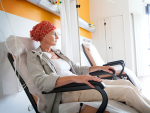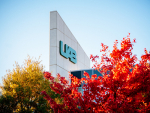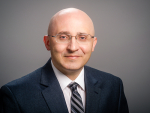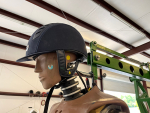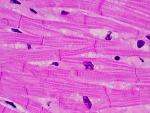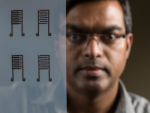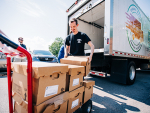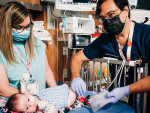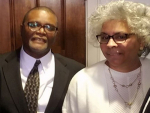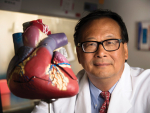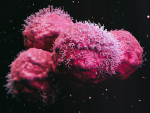Displaying items by tag: school of engineering
Seven UAB students were selected to attend WE22, the world’s largest conference for women in technology and engineering.
Tagged under
The study’s goal is to limit the toxic side effects common to many cancer therapies while not affecting their therapeutic benefits.
Tagged under
Tagged under
- release
- commencement 2022
- office of the president
- graduate school
- college of arts and sciences
- school of education
- school of engineering
- school of nursing
- school of medicine
- school of dentistry
- school of optometry
- school of health professions
- school of public health
- collat school of business
- abroms engel institute for the visual arts
- alys stephens center
- athletics
- oneal comprehensive cancer center
- wbhm
- uab educational foundation
- uab health services foundation
- students
With dozens of degree programs catering to students wishing to complete coursework online, UAB Online received a national recognition for its commitment to online learning.
Tagged under
Tagged under
The goal of the project is to refine the existing software framework and convert it into a user-friendly Python-based package.
At their annual Innovation Awards, UAB’s Bill L. Harbert Institute for Innovation and Entrepreneurship celebrated innovators from all corners of campus for their accomplishments, inventions and ingenuity.
Tagged under
- release
- college of arts and sciences
- school of engineering
- school of medicine
- department of medicine
- uab medicine
- collat school of business
- barefield entrepreneurship program
- department of physics
- department of pediatrics
- department of dermatology
- division of pulmonary allergy and critical care medicine
- comprehensive diabetes center
- department of materials science and engineering
- department of computer science
- department of ophthalmology and visual sciences
- department of mechanical engineering
- department of microbiology
- division of gerontology geriatrics and palliative care
- harbert institute for innovation and entrepreneurship
Tagged under
Insights gained from this project can lead to a new understanding of the mechanisms by which human deep-brain activity gives rise to cognitive-emotional behaviors, such as social thought processes, impulsivity and affect.
Tagged under
Direct reprogramming is a potential therapy for heart attack patients. In vitro, TBX20 improved contractility and mitochondrial function of reprogrammed heart muscle cells.
Tagged under
The COVID-19 pandemic exposed flaws in the existing infrastructure of PPE, and with the $500,000 grant, Haider will continue to develop the future’s personal protective equipment.
The new, one-of-a-kind center has a vision of improving the health and function of people with disabilities through encouraging access, increasing participation, and promoting adherence to recreation, exercise and sports.
Tagged under
Students and others at UAB will now have access to protein in accordance with their religious beliefs thanks to a monthly donation of 800 pounds of halal chicken to the university’s food pantry.
Tagged under
UAB Football plays Middle Tennessee at 2:30 p.m. Saturday, Oct. 8, in Protective Stadium. Tickets are $20-$45; free for UAB students.
Tagged under
The Zorro-Flow Inc. is the newest startup from the UAB Harbert Institute for Innovation and Entrepreneurship. The device is the first external catheter to collect urine effectively, safely and comfortably from critically ill female neonates and children.
Tagged under
Tagged under
The parents of eight children, the Ballards remember the scholarships that allowed their children to attend college. Now, they say it is their turn to give back.
Tagged under
Zhang wins $11.2 million NIH PPG grant to improve heart attack recovery through growth of new heart muscle cells.
More than 1,700 students will graduate from UAB this summer, and nearly 1,000 will walk in two commencement ceremonies at Bartow Arena.
Tagged under
- release
- office of the president
- office of the provost for student and faculty success
- graduate school
- college of arts and sciences
- school of health professions
- school of public health
- school of medicine
- school of engineering
- school of nursing
- school of education
- student affairs
- department of chemistry
UAB researchers have developed a plasma-enabled process that will limit the spread of toxins that could enter a patient’s bloodstream from implants.
Tagged under

